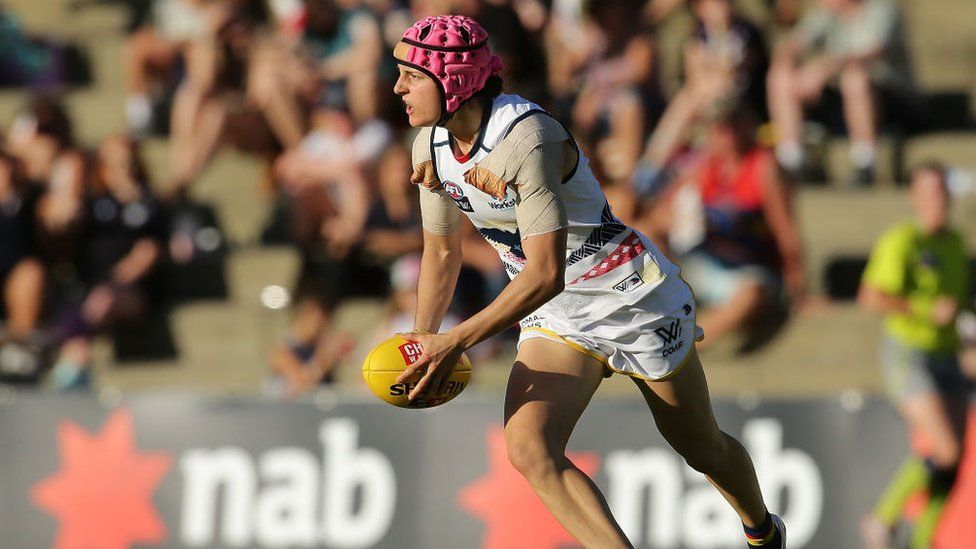According to Australian researchers, they have identified a professional female athlete with chronic traumatic encephalopathy (CTE) for the first time in history. .
Male athletes are typically used in studies on the degenerative brain disease linked to contact sports.
The Australian Rules football player Heather Anderson, 28, who committed suicide last year, had her brain examined for the diagnosis.
The case, according to scientists, may only be "the tip of the iceberg" for women in sport.
Although CTE cannot be detected until after death, it has been linked to dementia and increases the risk of mental illness. According to scientists, it is brought on by frequent head bumps and concussions; a study conducted by 13 academic institutions last year found "conclusive evidence" to support this theory.
With more than 300 cases in American football alone, research into the condition has increased in recent years.
High-profile Australian Rules football players Danny Frawley, Shane Tuck, and Polly Farmer, as well as former rugby league player-turned-coach Paul Green, all received CTE diagnoses.
However, research on CTE in female athletes has been scant.
In an effort to learn more about Ms. Anderson's demise, her family donated her brain to the Australian Sports Brain Bank (ASBB).
In the elite Australian Football League Women's (AFLW), she participated in eight professional games. Throughout her career, she experienced numerous injuries, at least one of which was a concussion.
Before her retirement in 2017, she was a gifted defender who gained notoriety for donning a neon pink helmet while playing.
Ms. Anderson's brain had three distinct lesions, including in regions of the organ that control movement, problem-solving, memory, language, and behavior, according to Prof. Michael Buckland, a co-author of the study.
According to Prof. Buckland, who spoke to the BBC, people with CTE frequently struggle with a variety of mental health conditions, and Ms. Anderson's family had told him that "in some ways," the research "made a lot of sense.".
According to him, it's common to experience depressive, anxious, irritable, impulsive, drug and alcohol use, as well as suicidal thoughts and deeds.
He continued by saying that Ms. Anderson's family was appreciative of the study and might promote further research into how head injuries impact female athletes.
"[Ms. Anderson] is, in my opinion, a sentinel case. Focusing on women in this field is unquestionably necessary, he said.
Sports organizations around the world are being pushed to strengthen concussion protocols and safeguard players.
More than 60 former Australian Football League players are suing the league for up to A$1 billion (£526,000; $668,000) in damages for the severe harm concussions are alleged to have caused them.
Nearly 400 players have joined a class action lawsuit in the US and the UK, where similar cases have also been filed.







